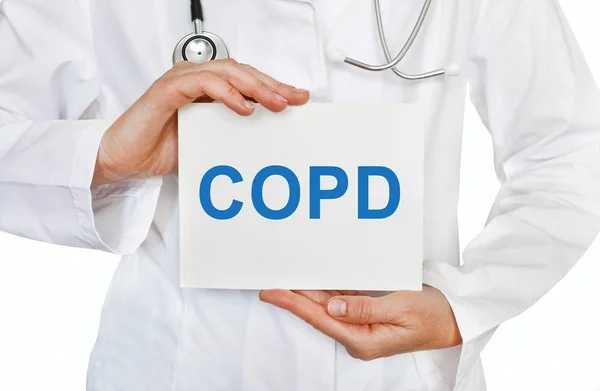HIV and Nutrition: Supporting a Healthy Immune System
Good nutrition is an essential part of managing HIV. A balanced diet can support immune health, help the body respond better to antiretroviral therapy (ART), and reduce the impact of HIV on overall well-being. People with HIV face unique nutritional needs and challenges, including potential nutrient deficiencies, medication side effects, and a higher risk of infections. This article explores the importance of nutrition for people living with HIV and provides practical dietary recommendations to support a strong immune system.
Good nutrition is an essential part of managing HIV. A balanced diet can support immune health, help the body respond better to antiretroviral therapy (ART), and reduce the impact of HIV on overall well-being. People with HIV face unique nutritional needs and challenges, including potential nutrient deficiencies, medication side effects, and a higher risk of infections. This article explores the importance of nutrition for people living with HIV and provides practical dietary recommendations to support a strong immune system.

How HIV Affects Nutrition and the Immune System
HIV targets and weakens the immune system, especially when untreated. This can lead to increased vulnerability to infections and illnesses, which, over time, may result in nutrient deficiencies. HIV can also alter the body's metabolism, making it harder to absorb certain nutrients or causing unwanted weight loss.
Antiretroviral therapy (ART) helps by controlling the virus, but some medications may have side effects that affect appetite or digestion. Managing these effects with proper nutrition can help keep the immune system strong, boost energy, and improve quality of life.
Key Nutrients for Immune Health
A balanced diet should contain macronutrients (carbohydrates, proteins, and fats) as well as a range of vitamins and minerals that support immune function. Here are some key nutrients to focus on:
- Protein: Protein is essential for building and repairing tissues, including immune cells. Adequate protein intake can help prevent muscle loss, which is common in people with HIV. Good protein sources include lean meats, poultry, fish, eggs, beans, nuts, and dairy products.
- Antioxidant Vitamins (A, C, and E): Antioxidants help protect the body from oxidative stress, which can damage cells and weaken the immune system.
- oVitamin Asupports skin and mucous membranes, the body’s first line of defense.
- oVitamin Cpromotes the production of immune cells.
- oVitamin Eaids in immune function and protects cells from damage.
- oFoods rich in these vitamins include fruits (like oranges, strawberries, and kiwi), vegetables (like bell peppers and carrots), nuts, and seeds.
- B Vitamins: B vitamins, especially B6, B12, and folate, are crucial for energy metabolism and the production of immune cells.
- oSources include lean meats, whole grains, dairy, leafy greens, and fortified cereals.
- Zinc: Zinc is vital for immune function and wound healing. It also plays a role in protecting against infections. High-zinc foods include red meat, poultry, seafood, beans, nuts, and whole grains.
- Selenium: Selenium works as an antioxidant and supports immune function. It can be found in foods like Brazil nuts, seafood, poultry, and whole grains.
- Omega-3 Fatty Acids: These healthy fats help reduce inflammation and support cell health. Sources include fatty fish (such as salmon and sardines), walnuts, flaxseeds, and chia seeds.
- Iron: Iron supports immune function and helps the body produce energy. Some people with HIV may experience low iron levels, which can lead to anemia. Iron-rich foods include lean meats, leafy greens, legumes, and fortified cereals.
- Fiber: Fiber supports digestive health and can improve gut bacteria balance, which is linked to immune health. High-fiber foods include fruits, vegetables, whole grains, and legumes.
Tips for Building a Nutritious HIV Diet
Eating a well-rounded diet can help people with HIV feel their best, manage symptoms, and support their immune health. Here are some tips to build a nutritious eating plan:
- Prioritize Whole Foods: Focus on whole, unprocessed foods like fruits, vegetables, whole grains, lean proteins, and healthy fats. Whole foods are rich in essential nutrients and have fewer additives than processed options.
- Eat Regular Meals and Snacks: Regular meals provide a steady source of energy and prevent unwanted weight loss. Adding healthy snacks between meals can be helpful if you experience side effects like nausea or loss of appetite.
- Stay Hydrated: Proper hydration is important for immune function, digestion, and overall health. Aim to drink plenty of water each day and limit sugary or caffeinated beverages.
- Manage Medication Side Effects with Nutrition:
- oNausea: Eating small, frequent meals, opting for bland foods, and avoiding greasy or spicy items can help. Ginger tea or ginger chews may also reduce nausea.
- oDiarrhea: Stick to low-fiber, bland foods like rice, bananas, applesauce, and toast, which can be easier on the digestive system. Drinking electrolyte solutions can help replace lost fluids and minerals.
- oAppetite Loss: If you’re experiencing appetite loss, try nutrient-dense foods that provide more calories and nutrients in smaller portions, like nuts, seeds, smoothies, and full-fat dairy products.
- Avoid Alcohol and Recreational Drugs: These can weaken the immune system and may interfere with HIV medications. If you choose to drink, do so in moderation and consult your healthcare provider to understand any potential interactions.
Foods to Include in a Weekly Meal Plan
Here’s a list of immune-supportive foods that can be incorporated into a balanced diet:
- Breakfast: Oatmeal topped with berries, nuts, and a dollop of yogurt for protein, fiber, and antioxidants.
- Lunch: A leafy green salad with grilled chicken or tofu, bell peppers, avocado, and seeds (like sunflower or pumpkin) for protein, healthy fats, and vitamins.
- Dinner: Baked salmon with a side of quinoa and steamed broccoli, providing omega-3s, protein, and vitamins A and C.
- Snacks: Fresh fruit, a handful of almonds, cottage cheese, or hummus with vegetables for added vitamins and minerals.
Staying Active and Reducing Stress
Physical activity is an important complement to a nutritious diet. Regular exercise, such as walking, swimming, or strength training, helps boost energy levels, maintain muscle mass, and improve mental health. Additionally, managing stress is crucial, as chronic stress can weaken the immune system. Techniques like meditation, deep breathing, or engaging in hobbies can help relieve stress and support overall well-being.
Importance of Regular Monitoring and Medical Care
People with HIV should have regular checkups with their healthcare provider, who can monitor for any potential nutrient deficiencies or health changes. Providers can also recommend supplements if needed, although it’s best to meet most nutritional needs through food.
Conclusion
Nutrition plays a vital role in managing HIV and supporting immune health. By focusing on a balanced diet rich in immune-supportive nutrients, staying hydrated, and managing medication side effects, people with HIV can enhance their overall health and well-being. A holistic approach that includes regular physical activity, stress management, and routine medical care can make a significant difference in maintaining a strong immune system and improving quality of life.








